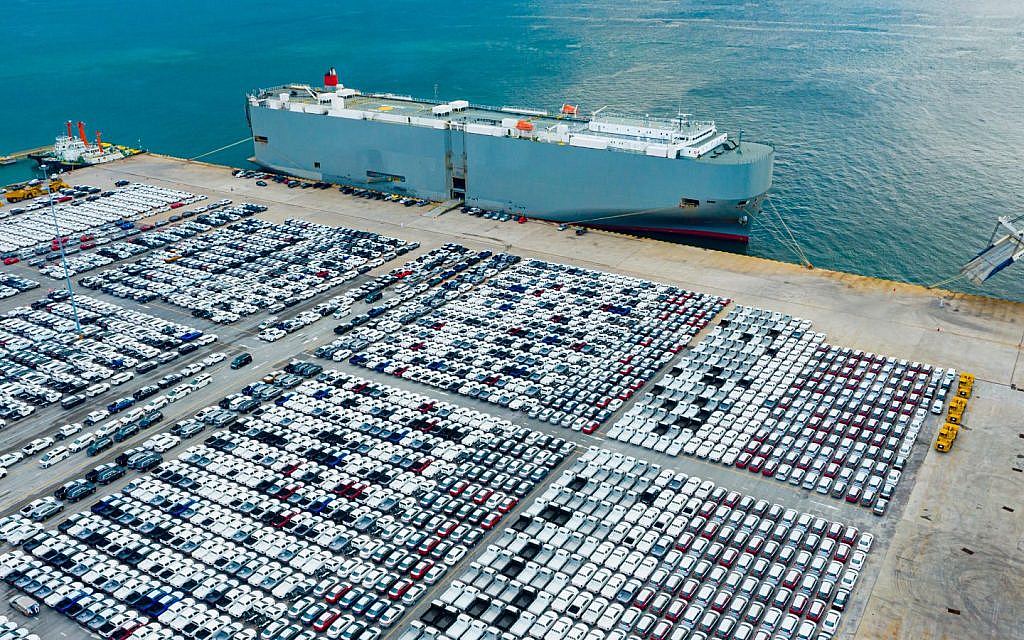Things to Consider When Exporting a Car from the UAE to Germany
Exporting a vehicle from the UAE to Germany is a regulated process with strict adherence to legal, technical and logistical standards. Whether the export is for personal relocation, resale or long-term use in Germany, understanding the procedural requirements and documentation is essential. The following guide outlines the key considerations and necessary steps to export a car from the UAE to Germany successfully.
PROCESS FOR EXPORTING A VEHICLE FROM THE UAE TO GERMANY
Here’s how to export a car from Dubai to Germany. We have penned all the details alongside the UAE vehicle export regulations.
1. Compliance with German Vehicle Standards
The foremost consideration when you export a car from the UAE to Germany is its compliance with local technical and environmental regulations. Germany enforces stringent standards to ensure road safety and reduce emissions. To be eligible for registration, vehicles must:
- Comply with German and EU emissions standards.
- Fulfil all safety and technical inspection requirements, notably those enforced by TÜV (Technischer Überwachungsverein).
Securing a Certificate of Conformity (CoC) from the manufacturer is highly recommended. This document certifies that the vehicle meets EU requirements, streamlining the approval process upon arrival in Germany.
2. Documentation Preparation

Accurate and complete documentation is crucial for both export and import procedures. It ensures a smooth customs process and mitigates the risk of delays or financial penalties. The following documents are required for UAE-to-Germany car transport:
- Original purchase invoice indicating the vehicle’s value.
- Certificate of Conformity (CoC).
- UAE vehicle registration documents.
- Proof of identity and German residency.
- Export clearance certificate from the UAE authorities.
- Valid insurance documentation covering transit.
3. Shipping Options and Associated Costs
The choice of shipping method depends on budget, vehicle type and delivery timeframe. The three primary methods to export a car from the UAE to Germany are:
Roll-on/Roll-off (RoRo)
This is a cost-effective shipping method ideal for standard vehicles. The car is driven directly onto and off the ship. While it is budget-friendly, it offers limited protection from weather or external elements during transit.
Container Shipping
Container shipping provides greater security and shields the vehicle from environmental factors. It’s a preferred choice for luxury, vintage or multiple vehicles being transported together. Though more expensive than RoRo, it offers peace of mind through added protection.

Air Freight
Air freight is the fastest option but also the most expensive. It is usually used for high-value, time-sensitive or luxury cars that need to reach Germany quickly and in pristine condition.
Sea freight transit time generally ranges between three to six weeks. Moreover, air freight costs vary considerably based on weight and dimensions.
4. Customs Clearance and Import Duties in Germany
Upon the vehicle’s arrival in Germany, customs clearance is mandatory. The applicable duties and taxes include:
- Import Duty: Generally, 10% of the declared vehicle value.
- Value-Added Tax (VAT): Currently, 19% VAT calculated on the vehicle value plus import duty.
Exemptions may apply under certain conditions. Individuals relocating to Germany may qualify for a duty-free import if:
- The car has been owned and used by the individual for at least six months.
- The individual is moving to Germany for permanent residence.
German car import requirements supporting the duration of ownership and relocation status must be submitted to benefit from exemptions.
5. Vehicle Registration and Insurance Requirements
Following customs clearance, registration of the vehicle is compulsory before it can be legally driven in Germany. The process involves:
- Obtaining valid German liability insurance (eVB-Nummer).
- Completing a TÜV inspection to ensure roadworthiness and compliance.
- Registering the vehicle at the local Kfz-Zulassungsstelle (vehicle registration office).
- Payment of registration fees and annual road taxes.
Temporary stays under 12 months may permit the use of foreign registration plates, provided appropriate documentation and insurance coverage are maintained.

6. Restrictions on Vehicle Age and Condition
While Germany does not explicitly prohibit older vehicles, those that are aged (over 30 years) or in poor condition may be subject to stricter emissions and safety inspections. Ensuring the vehicle is well-maintained and mechanically sound significantly improves the likelihood of passing the TÜV inspection.
7. Export Certificate Fee Details
When exporting a car from the UAE to Germany, getting a Vehicle Export Certificate is a key step. This certificate allows the car to be officially deregistered in the UAE. The fee typically ranges from AED 100 to AED 150 for passenger cars, plus an extra AED 20 knowledge fee. You’ll also need export plates to move the car to the port, which can cost between AED 70 and AED 700, depending on the type and duration.
You can apply for the export certificate online through the RTA website or visit a registration centre in person. Before applying, make sure all traffic fines are paid, and if the car is under a loan, you’ll need a No Objection Certificate (NOC) from the bank. The process is quick and usually completed within two working days, helping you avoid delays in your car export process.
8. Selecting a Reputable Shipping and Export Partner
Engaging a professional shipping or logistics company experienced in UAE-to-Germany exports can simplify the process. Services typically offered include:
- Assistance with document preparation.
- Customs clearance support in both the UAE and Germany.
- Guidance through homologation and TÜV processes.
- Delivery and registration assistance within Germany.
Working with a reliable partner reduces administrative burdens and minimises the risk of compliance failures or logistical setbacks.
9. Additional Considerations
Apart from the legal requirements and documentation, here’s what you need to know when you export a car from the UAE to Germany.
- Budgeting: Beyond shipping and customs duties, allocate funds for inspections, insurance, possible modifications and registration fees.
- Timeframe: Plan for a total duration of 4 to 8 weeks, accounting for shipping, customs processing, inspection and registration.
- Legal and Regulatory Updates: Customs rules and technical requirements may evolve. Consulting German customs authorities or legal experts ensures adherence to current regulations.
- Environmental Compliance: Entry into Germany’s environmental zones (Umweltzonen) requires specific emissions stickers. Car owners need to have some kind of stickers to drive in these zones. These green emissions stickers (Feinstaubplakette) are available at TÜV, DEKRA, or local registration offices. Moreover, older vehicles may need retrofitting to qualify.
FAQs
What shipping options are available for exporting cars from the UAE?
You can export cars from the UAE using Roll-on/Roll-off (RoRo), container shipping or air freight, depending on the budget and vehicle type.
Can you bring cars from the UAE to Europe?
Yes, you can bring cars from the UAE to Europe, but they must meet EU safety and emissions standards and go through customs and registration procedures.
Can I export my car from Dubai?
Yes, you can export your car from Dubai, provided you obtain the required export documentation, clear all outstanding fines and complete the deregistration process.
The process to export a car from the UAE to Germany demands preparation, from regulatory compliance to vehicle registration. By adhering strictly to both UAE export and German import regulations, vehicle owners can manage the export with confidence and efficiency. Moreover, there are many export cars for sale in the UAE that are available for businesses and individuals.
To learn more about the UAE’s vehicle import and export regulations, keep reading dubizzle’s cars blog.
Comments
Post a Comment